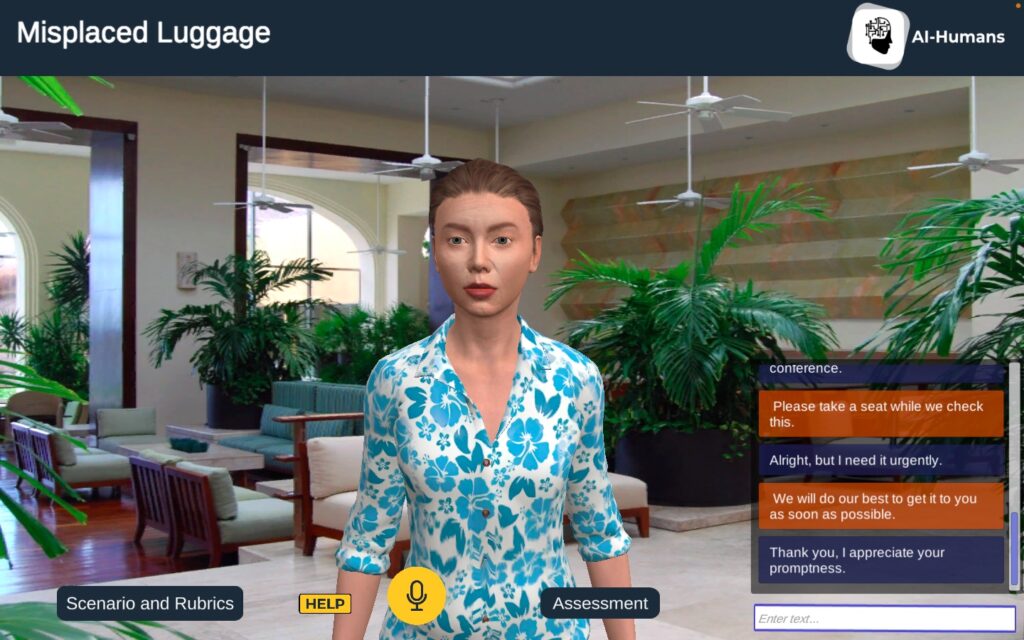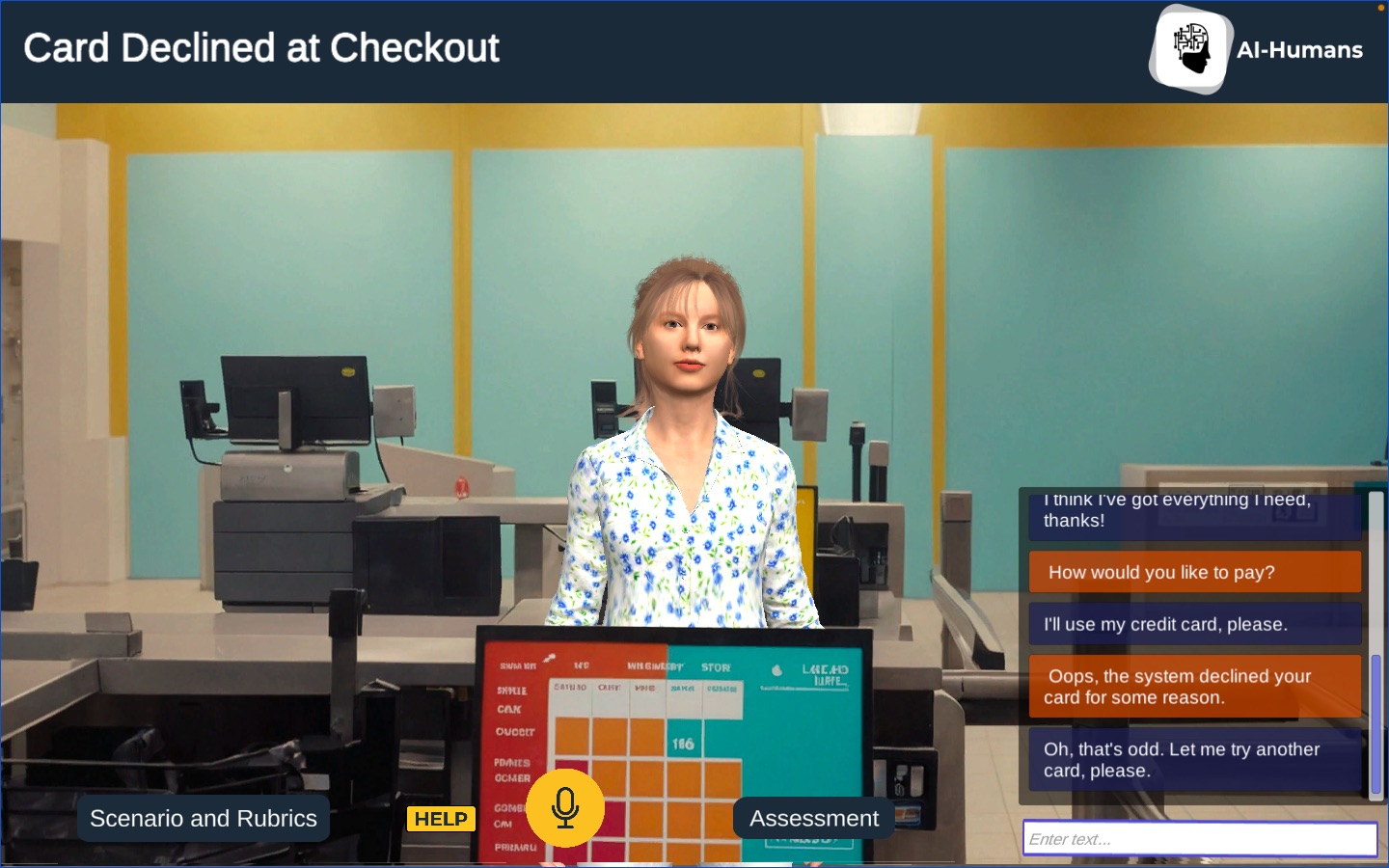The business landscape is highly competitive and having a skilled workforce becomes very crucial. Technical skills can be acquired in colleges, universities and institutes. When it comes to soft skills there is no clear-cut training for it, yet its significance in the success of an organization cannot be overlooked. As companies strive for innovation and growth, they recognize that fostering a workforce equipped with not just technical expertise, but also strong interpersonal abilities is crucial.
One of the most effective ways to conduct soft skills training is to make it realistic with opportunities for practical experience. AI-Humans is one such platform that offers training and practice to develop and polish soft skills in a virtual, but highly realistic environment.
What are soft skills?
Soft skills are often referred to as interpersonal or non-technical skills. They encompass a broad range of attributes that facilitate effective communication, collaboration, problem-solving, and emotional intelligence in the workplace. Some examples that jump to mind are communication skills, teamwork, adaptability, leadership, time management, and conflict resolution.
Why should you conduct soft skills training for your employees?
Soft skills are the glue that binds together teams and drives organizational success. Unlike hard skills, which are job-specific and can be taught through traditional methods, soft skills are more complex and require ongoing development. Employees with strong soft skills are better equipped to navigate diverse work environments, build meaningful relationships, and adapt to changing circumstances. They contribute to a positive work culture, improved productivity, and enhanced customer satisfaction.
Investing in soft skills training yields numerous benefits for both employees and organizations. By honing these skills, employees become more effective communicators, better collaborators, and adept problem solvers. This, in turn, fosters higher employee engagement, reduces turnover rates, and enhances overall performance. Moreover, in an era where remote work and virtual collaboration are becoming increasingly prevalent, the ability to communicate and connect effectively across digital platforms is essential.

What makes AI-powered soft skills training highly effective?
Scenario-based training offers a highly effective approach to developing soft skills in a realistic and immersive environment. Unlike traditional training methods that rely heavily on theoretical concepts, scenario-based learning places employees in simulated real-life situations where they must apply their soft skills to resolve challenges.
Realistic and Immersive Environment: Scenario-based training provides employees with an environment that closely mimics real-life situations, fostering a more engaging and immersive learning experience.
Application of Soft Skills: Employees are able to directly apply their soft skills, such as communication, collaboration, and problem-solving, within simulated scenarios, allowing for practical skill development.
Enhanced Learning Retention and Application: The hands-on nature of scenario-based training enhances retention as employees learn by doing. They are more likely to remember and apply their learning in real-world situations.
Immediate Feedback and Response Refinement: Participants receive immediate feedback on their actions and decisions within scenarios, enabling them to refine their responses and improve their soft skills iteratively.
Practice of Key Skills: Scenario-based training facilitates the practice of critical skills like decision-making, problem-solving, and interpersonal communication in a controlled yet realistic setting.
Dynamic and Engaging Learning: The interactive nature of scenario-based training keeps participants actively engaged, leading to a more dynamic and effective learning experience.
Exploration of Perspectives: Employees can explore different perspectives and approaches within scenarios, broadening their understanding and empathy towards others’ viewpoints.
As the business landscape evolves and demands greater adaptability and collaboration, investing in scenario-based training becomes not just advantageous but imperative. By prioritizing the enhancement of soft skills through immersive learning methodologies, companies can empower their workforce to navigate challenges effectively, foster innovation, and drive sustained success in an ever-changing world.

